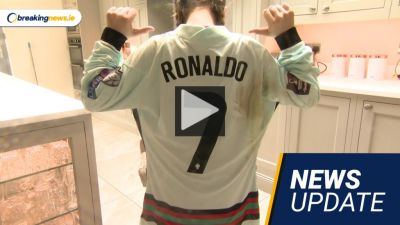The State’s chief witness against a mother-of-two who was convicted of murdering her former husband should not have been allowed to give evidence to a jury via video-link and through an intermediary, the Court of Appeal was told on Friday.
In October 2020, Rita O'Driscoll (49), of Bridge Street, Bandon, Co Cork, was convicted at the Central Criminal Court in Cork of the murder of Timothy 'Timmy' Foley (44) at Dan Corkery Place, Macroom, Co Cork.
During the trial, the jury was told the victim was stabbed 28 times.
Although O’Driscoll claimed she had been acting in self-defence, the jury’s guilty verdict was unanimous, and she was given a mandatory life sentence for the offence which took place on October 8th, 2018.
She has launched an appeal against the conviction and in documents submitted to the three-judge court, it was stated her trial judge had erred in "acceding to the prosecution’s application to allow their main witness give evidence in accordance with the provisions of Section 13 of the Criminal Evidence Act 1992, with the assistance of an intermediary”.
Main witness
At today’s hearing, the Court of Appeal was told the main witness in the murder trial had been Mr Foley’s brother Jason Foley.
Michael Bowman SC, for O’Driscoll, said his client had claimed during her trial that it was Jason Foley who had stabbed his brother before attacking her on the night in question.
However, as result of an acquired brain injury suffered in 2010, Jason Foley was allowed to give his evidence against O’Driscoll via a video-link and with the help of an intermediary.
This, Mr Bowman said, gave the impression that Jason Foley was in some way “vulnerable”.
But the only witness who gave any evidence regarding Jason Foley’s ability to give evidence was his own GP, he added.
“He wasn’t introduced to the jury as an expert. He was introduced as a GP,” Mr Bowman said.
He said evidence from a neurological expert should have been sought to determine if Jason Foley suffered from a mental disorder under terms laid out in the legislation and as such required assistance to give his testimony.
'Demeanour'
Juries, the counsel continued, are told to “observe the demeanour of the witness and how they engage with others”.
Referring to the jury in his client’s trial, Mr Bowman said: “All they see is the chief prosecution witness presenting as this vulnerable individual, asking someone on his behalf if can he have a toilet break. That is the mischief this appeal seeks to address”.

Siobhán Lankford SC, for the State, said this had been a case involving “extreme violence which had taken place in the home of Jason Foley”, whom she described as suffering from an intellectual disability.
Jason Foley needed assistance when attending his GP, Ms Lankford said, and the jury did not get a “distorted view” of the witness just because he was allowed to give his evidence remotely and with the help of an intermediary.
“His intellectual disability was something the jury would have had to have been aware of, regardless of the presence of any intermediary or video-link,” she said.
Mr Justice George Birmingham, presiding, said the court was reserving judgment on the matter.







